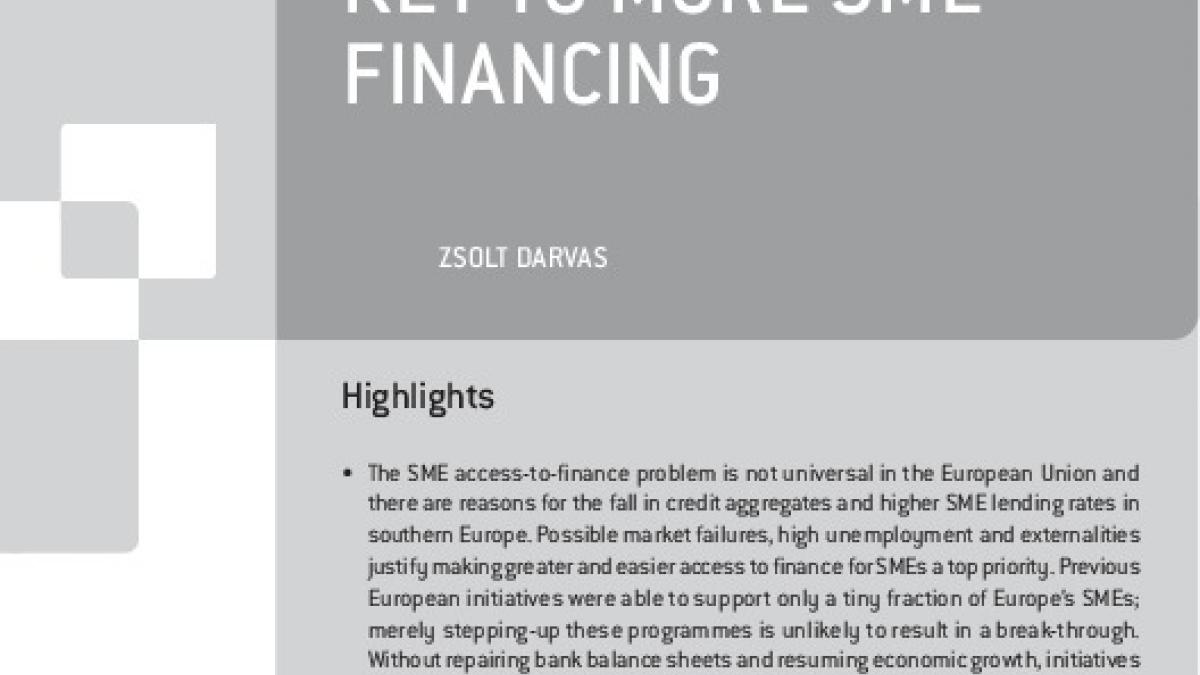Banking system soundness is the key to more SME financing
This briefing paper was prepared for the European Parliament Committee on Economic and Monetary Affairs ahead of the European Parliament’s Monetary Di

The SME access-to-finance problem is not universal in the European Union and there are reasons for the fall in credit aggregates and higher SME lending rates in southern Europe. Possible market failures, high unemployment and externalities justify making greater and easier access to finance for SMEs a top priority. Previous European initiatives were able to support only a tiny fraction of Europe’s SMEs; merely stepping-up these programmes is unlikely to result in a breakthrough. Without repairing bank balance sheets and resuming economic growth, initiatives to help SMEs get access to finance will have limited success. The European Central Bank can foster bank recapitalisation by performing in the toughest possible way the asset quality review before it takes over the single supervisory role. Of the possible initiatives for fostering SME access to finance, a properly designed scheme for targeted central bank lending seems to be the best complement to the banking clean-up, but other options, such as increased European Investment Bank lending and the promotion of securitisation of SME loans, should also be explored.



